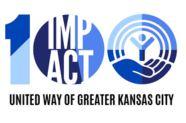Kansas Legal Services offers you some guidance if you have medical debt weighing you down. Please watch our new video for steps to take.
https://youtu.be/hM2MgstFel0
Some types of old debt are no longer collectible after a certain point. But collection agencies make money by scaring people into restarting the clock on payments.
A Rural Crisis: Medical Debt in America's Heartland
A Rural Crisis: Medical Debt in America's Heartland
Consumer Debt Advice from National Consumer Law Center https://library.nclc.org/article/stopping-debt-collection-harassment-consume
This client-focused handout contains information and tips about how to handle a call from a collector or someone collecting a debt on another's behalf.
This brochure talks about your options as a consumer when debt or debt collection becomes too much to handle.
Our Partners
LSC's support for this website is limited to those activities that are consistent with LSC restrictions.



